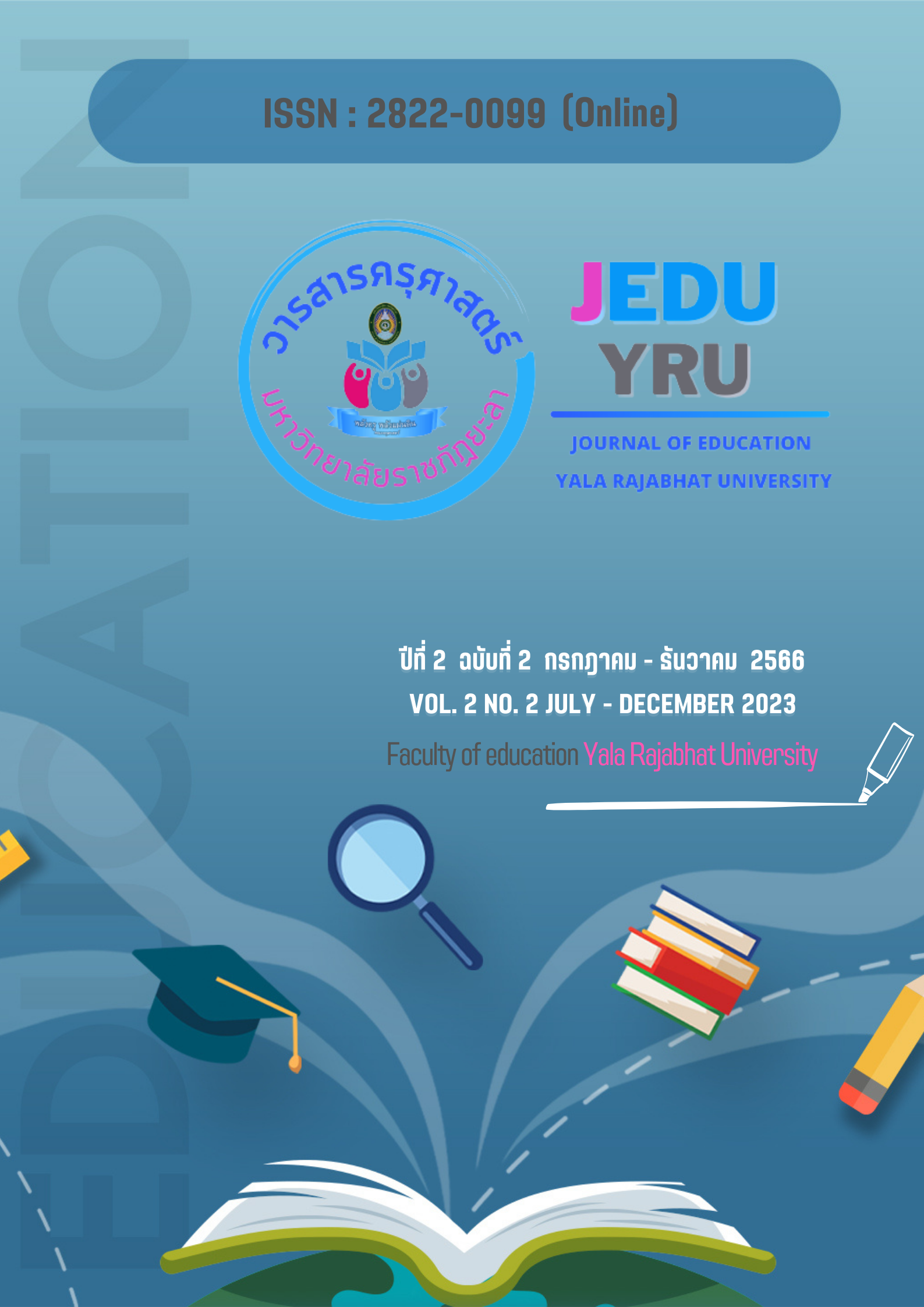A Development Positive Reinforcement Activity to Increase Responsible Behavior Activity of Children with Special Needs
Main Article Content
Abstract
This Study is the mixed method design was to develop positive reinforcement activity to increase responsible behavior activity of children with special needs. The sampling group of study were 8 students. The tools consist of the positive reinforcement activity and the hyperactive behavior record. The descriptive and Wilcoxon signed rank tests were used for analysis. The result showed that in the comparison of hyperactive behavior, the post achievement score was higher than the pre-score (p-value = 0.048). As a result, it is possible to conclude that positive reinforcement could increase the responsibility of children with special needs.
Article Details
References
จีระวรรณ ศรีจันทร์ไชย. (2556). การดูแลเด็กที่มีความบกพร่อง. มหาสารคาม: วิทยาลัยพยาบาลศรีมหาสารคาม.
ดวงชนก ลันดา และ จรูญเกียรติ กุลสอน. (2559). การพัฒนาการเรียนรู้นักเรียนที่มีความต้องการจำเป็นพิเศษโดยครอบครัวและชุมชน ในจังหวัดชัยภูมิ. วารสารวิชาการและวิจัยสังคมศาสตร์, 11(ฉบับพิเศษ), 13-24.
ธัญวดี นาคมิตร บุษกร พันธ์เมธาฤทธิ์ และ พิสมัย วัฒนสิทธิ์. (2561). ปัจจัยคัดสรรที่มีอิทธิพลต่อปัญหาพฤติกรรมของเด็กวัยเรียนโรคสมาธิสั้นตามการรับรู้ของมารดา. วารสารเครือข่ายวิทยาลัยพยาบาลและการสาธารณสุขภาคใต้, 5(1), 135-149.
ปองพล ประโมทยกุล และ สุการต์พิชา ปิยะธรรมวรากุล. (2563). การปรับพฤติกรรมที่ไม่พึงประสงค์ของเด็กออทิสติกโดยใช้การเสริมแรงแบบเบี้ยอรรถกร. Lawarath Social E-Journal, 2(1), 78-86.
ฐานิตา ฦาชา และ สุวรี ศิวะแพทย์. (2554). ผลของการใช้เบี้ยอรรถกรควบคู่การเสริมแรงทางสังคมที่มีต่อพฤติกรรมการรับประทานผักและผลไม้ของเด็กปฐมวัย. วารสารวิจัย มข., 11(2), 123-130.
พันยศ เงินวัฒนะ.(2560). การพัฒนาพฤติกรรมความรับผิดชอบในชันเรียนของเด็กปฐมวัยด้วยวิธีการเสริมแรงทางบวก. นครนายก: มหาวิทยาลัยสวนดุสิต.
ภาควิชาการศึกษาพิเศษ. (2562). หลักสูตรครุศาสตร์บัณฑิต สาขาวิชาการศึกษาพิเศษ (4 ปี) [ออนไลน์]. สืบค้น 6 กันยายน 2565, จาก www.qa.cmru.ac.th/web/curriculum/2562/BEduSpecialEducation(4)62.pdf.
ยุวดี เอี๊ยวเจริญ. (2561). การใช้เบี้ยอรรถกรในการลดพฤติกรรมก้าวร้าวของเด็กออทิสติก. Veridian E-Journal,Silpakorn University, 11(1), 2063-2074.
Angeloa, M. (2002). Coping with Autism: Stress on Families. Cited 2022 January 6. From http://www.child-autismparentcafe.com/stress-on-families.html.
Daniel, K. (2013). Thinking Fast and Slow. NY: Farrar, Straus and Giroux.
Martha, L. & Lolagul, R. (2021). A Modern-day Early Childhood Teacher Education Initiative on Tajikistan’s Historic Silk Road: Dushanbe to The Roof of The World. Journal of Early Childhood Teacher Education, 42(1), 76-92.
Matthew, B.M., Michael, A.H. & Johnny, S. (2014). Qualitative Data Analysis. California: SAGE Publications, Inc.
Rebecca, F., Lucinda, P. & Sam, P. (2017). The Development of Behavior Problems Among Disabled and Non-disabled Children in England. Journal of Applied Developmental Psychology, 52(2017), 46-58.
Skinner, B.F. (1989). The Origins of Cognitive Thought. American Psychologist, 44(1), 13-18.


